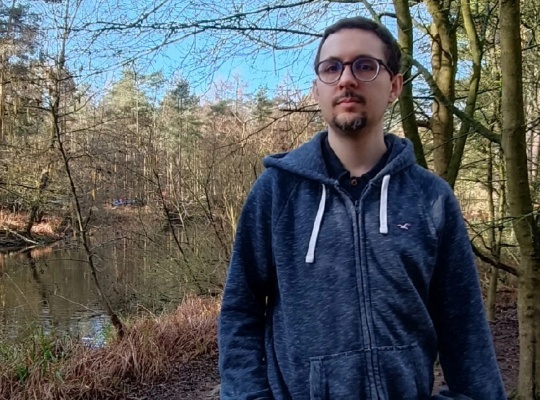Codetown
Codetown ::: a software developer's community
Google Web Toolkit and App Engine
Event Details

Time: January 26, 2011 from 6pm to 9pm
Location: Community Foundation of Sarasota
Street: 2635 Fruitville Rd
City/Town: Sarasota
Website or Map: http://maps.google.com/maps?o…
Event Type: meeting
Organized By: David Moskowitz
Latest Activity: Jan 30, 2011
Event Description
This month at the Sunjug, David Chandler from Google with discuss two technologies for developing and deploying Rich Internet Applications.
What’s New in GWT 2.1
Google Web Toolkit (GWT) lets you build and optimize rich
browser-based apps without having to be an expert in browser quirks,XMLHttpRequest, or JavaScript. In this talk, we'll look at powerful new capabilities in GWT 2.1 including MVP architecture with Activities and Places, client-server communication with RequestFactory, visual layout with GWT Designer for Eclipse, and performance optimization
with SpeedTracer.
Launching scalable apps with Google App Engine
Google AppEngine lets you build and host scalable Web applications written in Python or Java on Google's infrastructure. We'll look at how to build and deploy a GWT+GAE application with Google Plugin for Eclipse and get an overview of building the App Engine way, including
working with the Datastore, task queues, and quotas.
Speaker bio
David Chandler works with the Google Web Toolkit Team in Atlanta. An electrical engineer by training, Chandler got hooked on developing database Web applications in the days of NCSA Mosaic and has since written Web applications professionally in a variety of languages,
including C, perl, ksh, ColdFusion, Java, JSF, and GWT. Prior to joining Google, Chandler worked on Internet banking applications with Intuit and launched a non-profit startup built with GWT and AppEngine. Chandler holds a patent on a method of organizing hierarchical data in a relational database and blogs about Java Web development at turbomanage.wordpress.com.
Food and refreshments will be provided.
The event will be hosted by Community Foundation of Sarasota, located at 2635 Fruitville Rd, Sarasota, FL 34237, which is west of exit 210 off I75.
Meeting Schedule:
* 6-6:45 PM: Networking
* 6:45 - 8:30 PM: Presentation
All Are welcome. Please RSVP.
Comment Wall
Comment
-
Comment by David Moskowitz on January 30, 2011 at 9:14pm
-
The presentation slides are now available at
Notes
Welcome to Codetown!
 Codetown is a social network. It's got blogs, forums, groups, personal pages and more! You might think of Codetown as a funky camper van with lots of compartments for your stuff and a great multimedia system, too! Best of all, Codetown has room for all of your friends.
Codetown is a social network. It's got blogs, forums, groups, personal pages and more! You might think of Codetown as a funky camper van with lots of compartments for your stuff and a great multimedia system, too! Best of all, Codetown has room for all of your friends.
Created by Michael Levin Dec 18, 2008 at 6:56pm. Last updated by Michael Levin May 4, 2018.
Looking for Jobs or Staff?
Check out the Codetown Jobs group.
InfoQ Reading List
Cilium at Ten Years: Stronger Encryption, Safer Policies, and Clearer Visibility for Large Clusters

Cilium 1.19 has been released, marking ten years of development for the eBPF-based networking and security project. There isn’t a flagship feature in this release; instead, it focuses on security hardening, tightening encryption, refining network policy behaviour, and improving scalability for large Kubernetes clusters.
By Matt SaundersWarper: Rust Powered React Virtualisation Library

Warper 7.2 is a cutting-edge open-source React virtualization library utilizing Rust and WebAssembly for unmatched performance. With zero-allocation hot paths and O(1) circular buffer operations, Warper achieves 120 FPS even with 100,000 items. Its compact 8.7KB size and universal bundler compatibility set it apart. Explore a new era of efficient UI rendering!
By Daniel CurtisGoogle Brings Its Developer Documentation Into the Age of AI Agents

Google has announced the public preview of the Developer Knowledge API. It comes with a Model Context Protocol (MCP) server. This gives AI development tools a simple, machine-readable way to reach Google's official developer documentation.
By Claudio MasoloPresentation: Achieve Optimal Efficiency for Your Developer Experience Teams

Fabien Deshayes discusses the strategies behind Monzo’s Developer Velocity squad. He explains the "Platform as a Product" mindset, emphasizing the need for engineers with product acumen and tenure. He shares actionable frameworks for measuring DevEx impact through time, money, and cognitive load, demonstrating how a small, focused team can drive massive results in a regulated environment.
By Fabien DeshayesAWS Drops Patent Infringement Protection for Video Encoding Services

AWS has removed its legal protections for customers using its video transcoding and streaming services, potentially exposing them to patent infringement claims from codec rights holders. The change affects six services, including the popular file-based video processing service MediaConvert and live video encoding service MediaLive.
By Renato Losio
© 2026 Created by Michael Levin.
Powered by
![]()
RSVP for Google Web Toolkit and App Engine to add comments!
Join Codetown